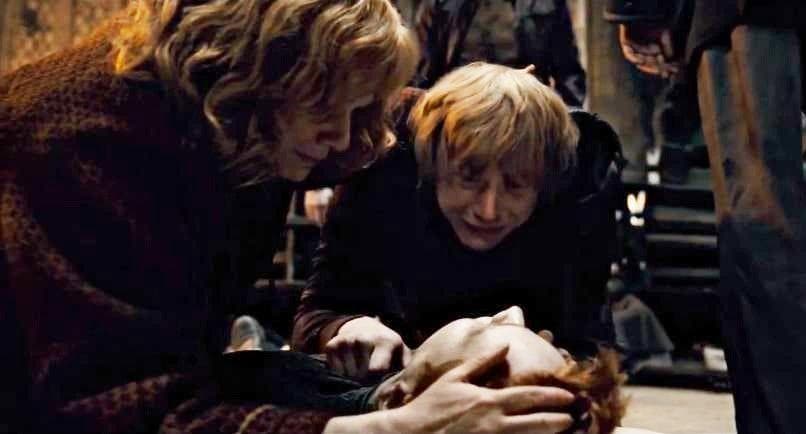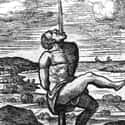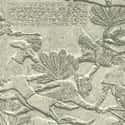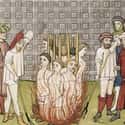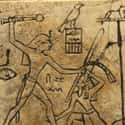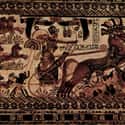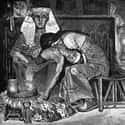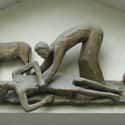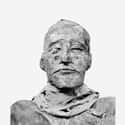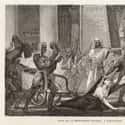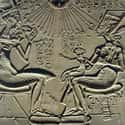-
(#1) POWs Were Impaled On Enormous Spikes
According to the UCLA Encyclopedia of Egyptology, Pharaoh Akhenaten - reportedly impaled 225 Nubian POWs during his reign.
Another Pharaoh, Merenptah, gave "a great number" of Libyans the same treatment.
-
(#2) Soldiers Were Beheaded And Emasculated
The Narmer Palette, a carved siltstone, was discovered at the site of the ancient capital city of Hierakonpolis or Nekhen at the end of the 19th century. Dating back to c. 3200-3000 BCE, the Palette is one of the most important and priceless artifacts surviving from ancient Egypt.
The Palette celebrates the exploits of Pharaoh Narmer and might be highlighting a victory over a group of unspecified foes. This victory included the beheading and emasculation of 10 enemy soldiers.
-
(#3) Children Were Dismembered And Burned Alive On A Bed Of Thorns
Diodorus Siculus, a first-century Greek historian, frequently wrote about Egyptian history and customs. In one of his writings, he recounts the truly horrific treatment allotted to young parricides - children who had slain their own parents.
According to Siculus, this punishment was so extreme because Egyptians considered the parricides' crime - taking the lives of those who gave them life - to be the worst action a human being could possibly commit.
-
(#4) Servants Were Slain And Buried As Human Sacrifices
In The Rise and Fall of Ancient Egypt, Toby Wilkinson claims that the elites of ancient Egypt would order the construction of "subsidiary graves" for their pets and human servants.
In other sites, remains were found scalped, strangled, and beheaded, possibly as human sacrifices for the next world. Djer, the third pharaoh of ancient Egypt's First Dynasty, was buried with 318 others when he perished around 2900 BCE.
-
(#5) Enemy Forces Were Burned Alive
Upon defeating an enemy in battle, ancient Egyptian forces would occasionally burn their surviving opponents. Middle Kingdom pharaoh Senusret I lit a group of rebels aflame "as human torches." Many years later, Prince Osorkon did the same to defeated enemy troops.
In the latter case, some of those burned were rebels who were previously Osorkon's own officials. These rebels were carried off "like goats the night of the feast of the Evening Sacrifice" and "burned with fire in the place of the crime."
-
(#6) Thousands Were Lost To A Terrifying Plague
A team of Italian archaeologists made a grim discovery while excavating a funerary complex in Luxor, formerly known as Thebes: human remains covered in lime situated near a bonfire. Modern scientists believe this may have been tied to smallpox.
The remains were dated to the third century, right around the time when the so-called "Plague of Cyprian" was wiping out thousands in the Roman Empire - including at least two emperors.
St. Cyprian, a Carthaginian bishop and the plague's namesake, wrote on the disease's devastating effects:
[The] bowels, relaxed into a constant flux, discharge the bodily strength... a fire originated in the marrow ferments into wounds of the fauces... the intestines are shaken with a continual vomiting... the eyes are on fire with the injected blood... in some cases the feet or some parts of the limbs are taken off by the contagion of diseased putrefaction.
-
(#7) Citizens Faced Capital Punishment For Not Being Good Samaritans
Diodorus Siculus claimed that ancient Egypt invoked dire consequences for anyone who didn't prevent the harm of another.
This particular law applied to anyone who witnessed an incident of violence, and the consequence was capital punishment.
-
(#8) The Wife Of Pharaoh Ramesses III Slit His Throat And Severed His Toe
Pharaoh Ramesses III was the victim of the infamous "harem conspiracy." In which Ramesses's wife, Tiye, plotted to slay her husband and place her son, Pentawere, on the throne. As Ramesses had multiple wives, Tiye wished to ensure her son's place in the line of succession.
The plot eventually included several others, all of whom were later executed when the plot failed. Ultimately, Ramesses's throat was slit and his toe was severed, but his chosen successor, Amun-her-khepeshef, still ascended to the throne as Ramesses IV.
-
(#9) Hypatia Was Brutally Beaten In A Church
Hypatia of Alexandria was a popular Neoplatonist philosopher, a leading mathematician, and a prominent astronomer. In 415 or 416 CE, a mob of Christian zealots dragged her into the street killing her.
Hypatia's popularity placed her in the center of a vicious power struggle between Alexandria's governor, Orestes - who was also one of Hypatia's admirers - and Cyril, the city's ambitious archbishop. The latter sought to win the Church's control of Alexandria and the former resisted, nearly resulting in his own demise.
When Hypatia was rumored to be thwarting the reconciliation efforts between Cyril and Orestes, a mob leader of the zealots chose to eliminate her.
-
(#10) Akhenaten Sentenced His Own Daughter To Perish
Pharaoh Akhenaten was hardly one of ancient Egypt's kindest fathers. He was ruthless in his children's punishments. One tale tells of Akhenaten ordering his daughter's execution following an argument between them.
To ensure he wouldn't encounter her in the afterlife, he severed one of her hands. Beliefs of the time upheld that a soul would only be admitted into the afterlife if their body was intact.
New Random Displays Display All By Ranking
About This Tool
In ancient Egyptian cognition and concepts, death does not mean the end of life but represents another form of life. They believe that the soul still exists after death, and believe in the theory of eternal life. It is precise because of this concept that the ancient Egyptians paid special attention to death rituals. They carefully built mausoleums and made mummies.
Burning alive is one of the most terrifying punishments in ancient Egypt. They believed that burning alive would destroy the human body so that the perpetrator could not be rebirth. The random tool introduced 10 creepy ways people dies in ancient Egypt.
Our data comes from Ranker, If you want to participate in the ranking of items displayed on this page, please click here.







